Brand storytelling is no longer a luxury—it’s a necessity. In today’s crowded digital landscape, the brands that stand out aren’t just selling products; they’re telling authentic stories that engage, inspire, and build lasting relationships with their audiences.
But how do you craft a story that captivates your audience? How do you weave brand narratives that evoke emotions and drive business results?
The answer lies in mastering the art of brand storytelling, and what better way to do so than by learning from the best storytellers in the industry?
In this article, we’ve compiled a list of the top brand storytelling books that will transform your marketing strategy and help you create narratives that resonate.
Whether you’re a seasoned marketer or just starting, these books offer invaluable insights into the power of storytelling in branding.
Why Brand Storytelling Matters in Modern Marketing
It humanizes your brand, allowing customers to connect with it personally. Effective stories communicate your values and mission clearly. They differentiate your brand in a crowded marketplace.
The power of brand storytelling can make or brake any business.
It shapes how people perceive your brand, influences their decisions, and ultimately drives sales. Mastering these skills is crucial for entrepreneurs who wish to effectively convey their ideas and strengthen their brand narratives.
In this article, we present The 10 Best Books on Brand Storytelling That Will Transform Your Marketing.
Each book offers unique insights and practical techniques designed to enhance your storytelling skills. Whether you’re new to marketing or looking to refine your approach, these top brand storytelling books are invaluable resources that can elevate your marketing efforts and help you master this powerful technique.

The Power of Business Storytelling
Business storytelling is a powerful tool that can help businesses connect with their followers, build brand awareness, and drive business results. By using stories, businesses can create an emotional connection with their customers, making them more likely to engage with the brand and become loyal customers.
In fact, research has shown that stories are more memorable than facts and figures, making them a critical element of any business strategy.
Key Benefits of Brand Storytelling:
- Creates emotional connections: Customers don’t just buy products; they buy emotions, experiences, and values.
- Differentiates your brand: A compelling story makes your brand stand out in a saturated market.
- Enhances brand trust and loyalty: Authentic storytelling fosters credibility and long-term relationships.
- Makes complex information digestible: Stories simplify abstract concepts, making them easier to understand and remember.
- Boosts customer engagement and conversion rates: Compelling narratives inspire action and influence purchasing decisions.
Now, let’s explore the 10 best books on brand storytelling that will revolutionize your marketing efforts.
Top 10 Books on Brand Storytelling for 2025
Overview of the best books:
| Title | Author | Best for | Key Concept |
| Building a StoryBrand 2.0 | Donald Miller | Marketing strategists, small business owners, beginners | The StoryBrand Framework – a seven-part model for positioning customers as heroes |
| Start with Why | Simon Sinek | Business leaders, brand strategists, entrepreneurs | The Golden Circle concept (Why-How-What) |
| All Marketers Are Liars | Seth Godin | Experienced marketers, brand managers | Authentic storytelling and worldview marketing |
| Made to Stick | Chip Heath & Dan Heath | Content creators, communicators, educators | The SUCCESs framework (Simple, Unexpected, Concrete, Credible, Emotional, Stories) |
| Wired for Story | Lisa Cron | Content marketers, copywriters, creative directors | Neuroscience of storytelling |
| The Storytelling Animal | Jonathan Gottschall | Cultural brand strategists, anthropologists, psychologists | Evolutionary psychology of storytelling |
| Resonate | Nancy Duarte | Presenters, public speakers, executives | Presentation structure and emotional resonance |
| Storyworthy | Matthew Dicks | Public speakers, personal brand builders, coaches | Personal storytelling techniques |
| The Hero with a Thousand Faces | Joseph Campbell | Advanced brand strategists, creative directors | The Hero’s Journey/monomyth structure |
| Winning the Story Wars | Jonah Sachs | Digital marketers, social media strategists, purpose-driven brands | Values-driven storytelling in digital media |
1. Building a StoryBrand 2.0 by Donald Miller
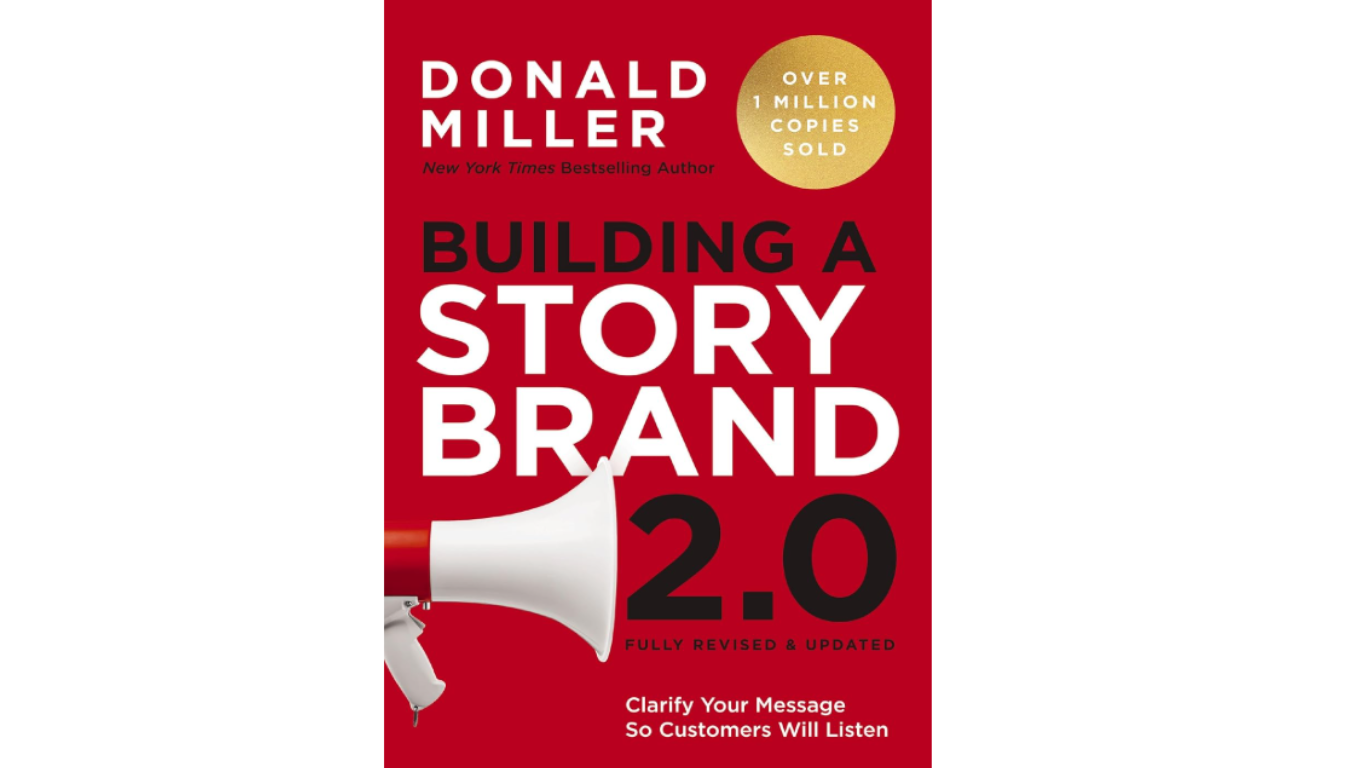
Building a StoryBrand emphasizes the necessity to clarify your message for effective communication with customers.
Key Takeaway:
Clarify your message so customers will listen; position your customer as the hero and your brand as the guide
Key insights from the book include:
- The StoryBrand Framework: A seven-part model that helps businesses position their customers as the heroes of their stories, effectively engaging them.
- Clear Messaging: Techniques to simplify messages and eliminate confusion, making it easier for potential customers to understand what your brand offers.
- Customer-Centric Approach: Strategies that focus on customer needs and desires, enabling brands to create narratives that resonate deeply.
Implementing these principles can significantly enhance your brand’s messaging strategy by focusing on the critical elements of persuasive communication, fostering stronger connections with your audience.
2. Start with Why by Simon Sinek
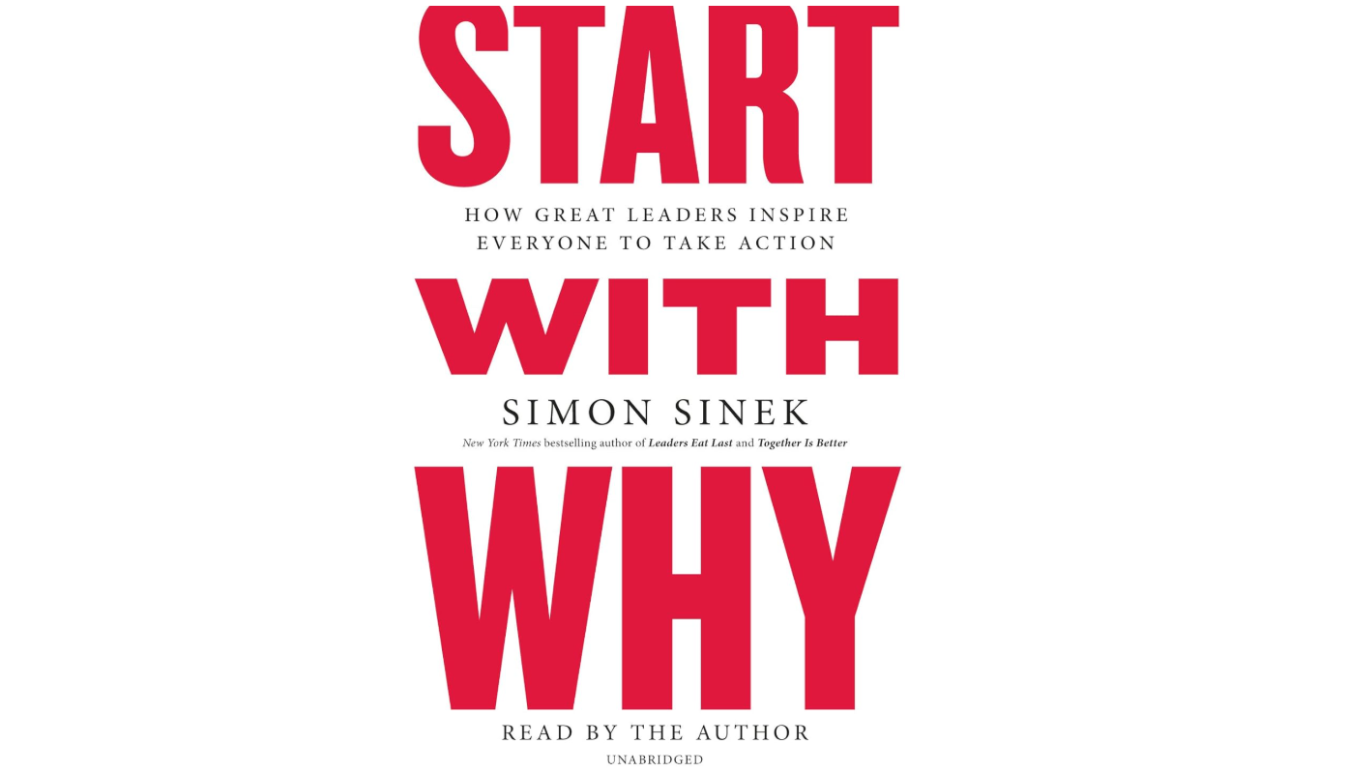
Understanding the concept of “Start with Why” can transform a brand’s approach to telling a great story and marketing. Sinek emphasizes that brands should clearly define their core purpose before explaining what they do or how they do it.
This fundamental “why” sparks enthusiasm and connection with customers, nurturing strong loyalty and trust.
Key Takeaway:
People don’t buy what you do; they buy why you do it.
Key points include:
- Inspiration over Manipulation: Brands that communicate their purpose inspire customers, leading to stronger emotional bonds.
- Customer Loyalty: Consumers are more likely to remain loyal when they resonate with a brand’s mission.
- Trust Building: Authenticity in expressing “why” enhances credibility, making storytelling more impactful.
Applying this principle lays the groundwork for deeper connections in future marketing strategies. Steve Jobs exemplified this approach at Apple, always starting with why their products mattered rather than just what features they had.
3. All Marketers Are Liars by Seth Godin
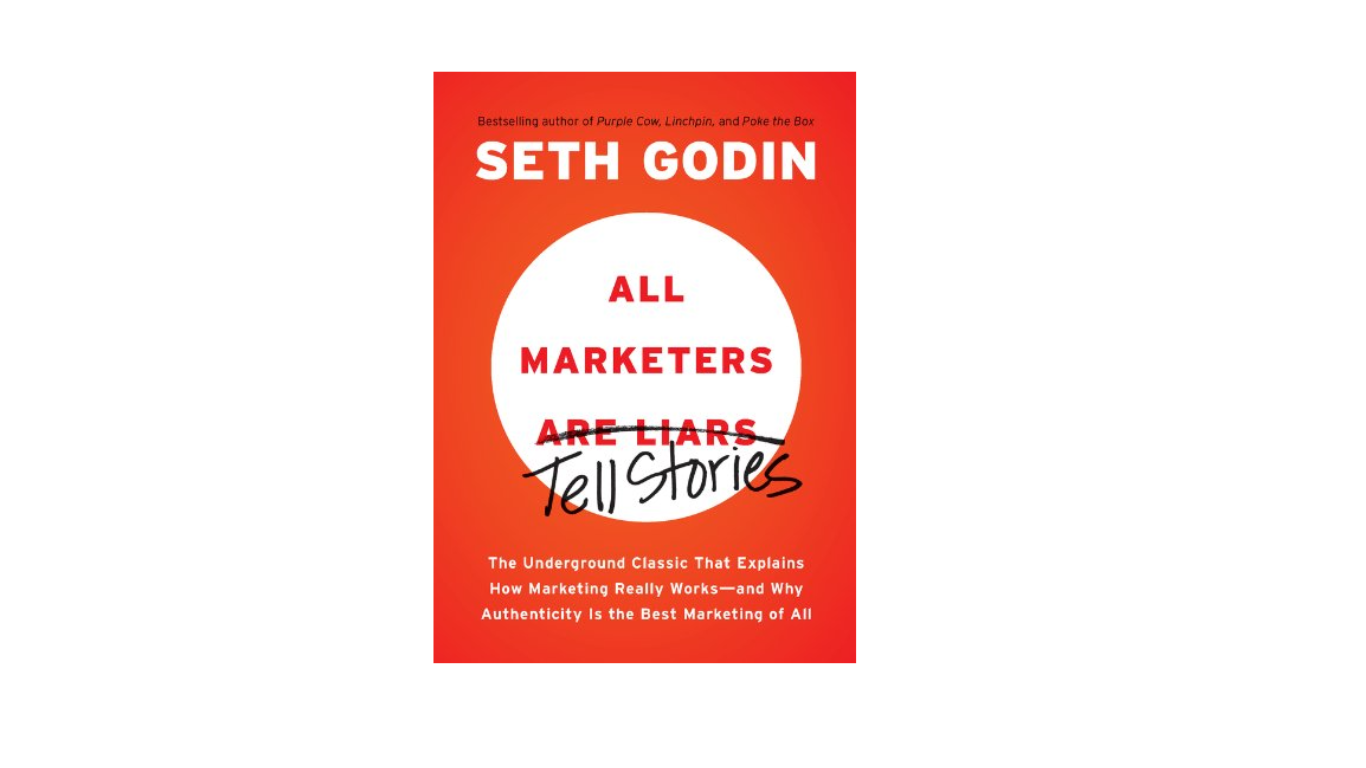
In All Marketers Are Liars, Seth Godin emphasizes the critical role of telling authentic stories in marketing.
He argues that compelling narratives that hook readers from the very first sentence are essential for building trust with an followers, especially in an era where skepticism is prevalent.
Key Takeaway:
Successful marketing is about telling authentic stories that match your customers’ worldview
Key insights from the book include:
- Authenticity matters: Brands must convey genuine stories that resonate with customers.
- Emotional connections: Effective storytelling taps into emotions, creating a deeper bond between the brand and its audience.
- Cultural relevance: Stories should reflect cultural values and beliefs, enhancing relatability.
By employing these principles, marketers can cultivate loyalty and foster lasting relationships with their customers.
4. Made to Stick by Chip Heath and Dan Heath
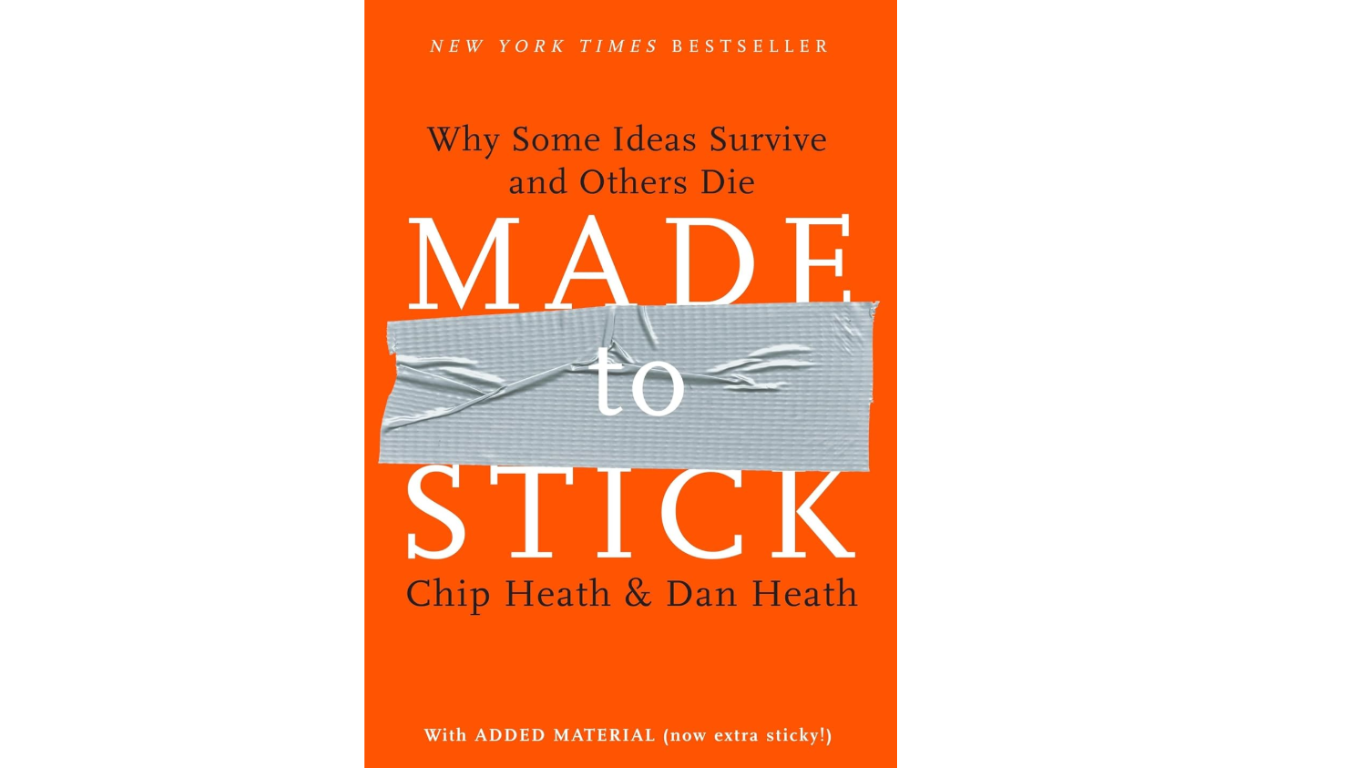
In Made to Stick, Chip and Dan Heath reveal the secrets behind creating memorable messages in an informative manner.
Key Takeaway:
Ideas that stick follow specific patterns that make them memorable and impactful
The book outlines essential elements that contribute to stickiness in storytelling:
- Simplicity: Conveying core ideas in a clear and concise manner.
- Unexpectedness: Capturing attention through surprising twists or insights.
- Concreteness: Using vivid imagery to make abstract ideas tangible.
- Credibility: Establishing trust through facts, statistics, or authoritative sources.
- Emotional connection: Engaging audiences by tapping into their feelings.
- Stories: Utilizing narratives to illustrate points and enhance relatability.
These techniques empower marketers to craft impactful stories that resonate deeply with their audience, ensuring that the message endures long after it is delivered.
5. Wired for Story by Lisa Cron
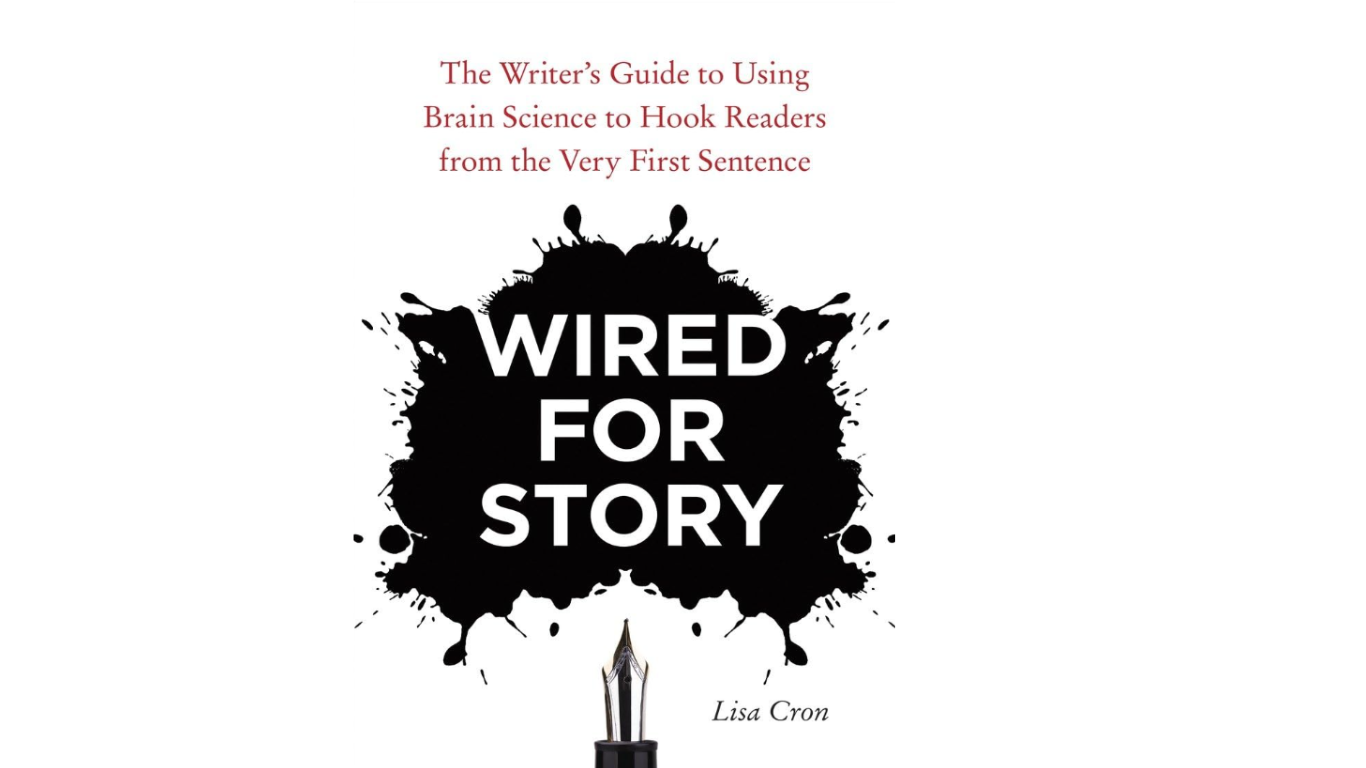
Lisa Cron explores the brain science behind storytelling, explaining how our brains are naturally inclined to respond to stories.
Key Takeaway:
Stories captivate because our brains are hardwired to seek meaning through narrative.
Here are the main takeaways:
- Cognitive Engagement: Stories activate multiple areas of the brain, enhancing emotional connections and retention.
- Predictive Nature: Humans instinctively seek patterns; effective storytelling meets this need by providing structure and predictability.
- Memory Activation: Well-crafted stories stimulate memory recall, making brand messages more memorable.
Marketers can use these insights to create narratives that resonate emotionally, resulting in deeper consumer engagement and loyalty. By understanding the cognitive aspects of storytelling, brands can develop powerful marketing strategies that leave a lasting impact.
6. The Storytelling Animal by Jonathan Gottschall
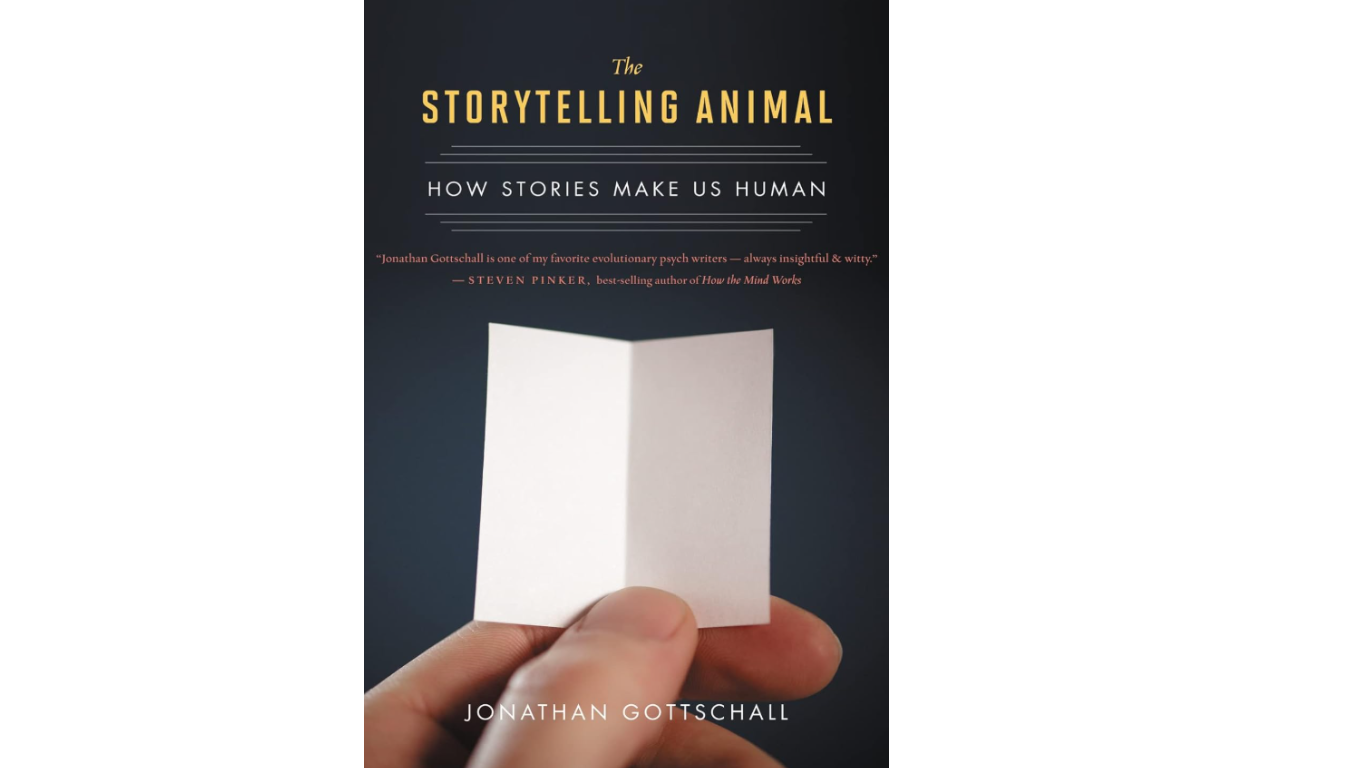
Understanding the psychological basis for storytelling’s effectiveness in marketing is crucial for engaging consumers. Jonathan Gottschall’s book serves as a writer’s guide, arguing that storytelling is deeply ingrained in human nature, influencing how we think, feel, and act.
Key Takeaway:
Storytelling is a fundamental human trait that shapes our identity and social connections.
Key insights include:
- Narratives shape our perceptions: Stories help us make sense of the world and form connections.
- Emotional engagement: A well-crafted story can evoke empathy, making your brand more relatable.
- Behavioral influence: Stories can effectively drive consumer decisions, aligning with their values and beliefs.
By leveraging these insights from The Storytelling Animal, marketers can create compelling narratives that resonate with their audience and enhance brand loyalty.
7. Resonate by Nancy Duarte
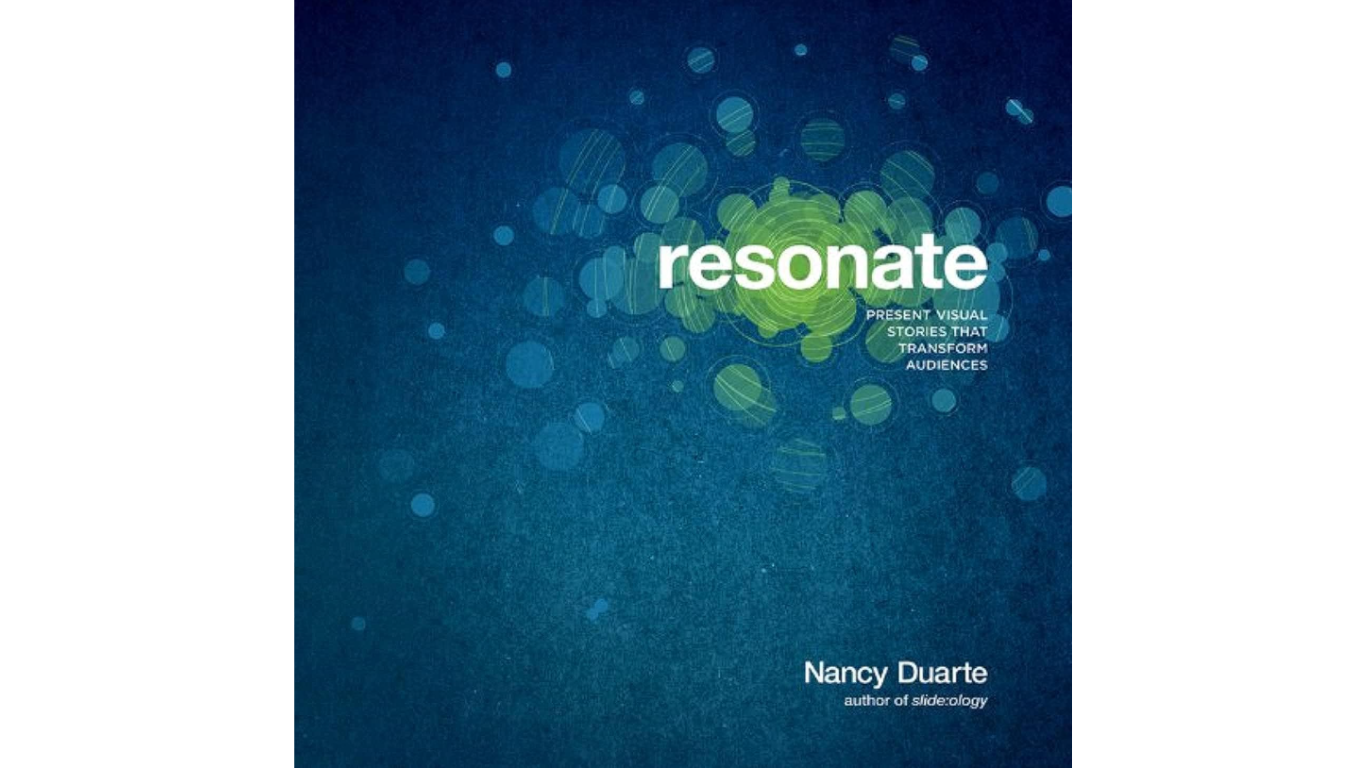
Nancy Duarte’s Resonate provides essential techniques for crafting emotional presentations that win friends and connect deeply with audiences.
The book emphasizes the importance of storytelling in presentations, highlighting how emotional engagement can transform a simple message into a memorable experience.
Key Takeaway:
Transform presentations by creating a journey between what is and what could be.
Key strategies include:
- Understanding Your Audience: Tailor your narrative to resonate with the emotions and values of your listeners.
- Utilizing Structure: Implement a clear framework that guides the audience through the story, maintaining their attention and interest.
- Visual Storytelling: Leverage compelling visuals to enhance the narrative, making it more impactful and relatable.
Duarte’s insights empower marketers to design presentations that not only inform but also inspire action among consumers.
8. Storyworthy by Matthew Dicks
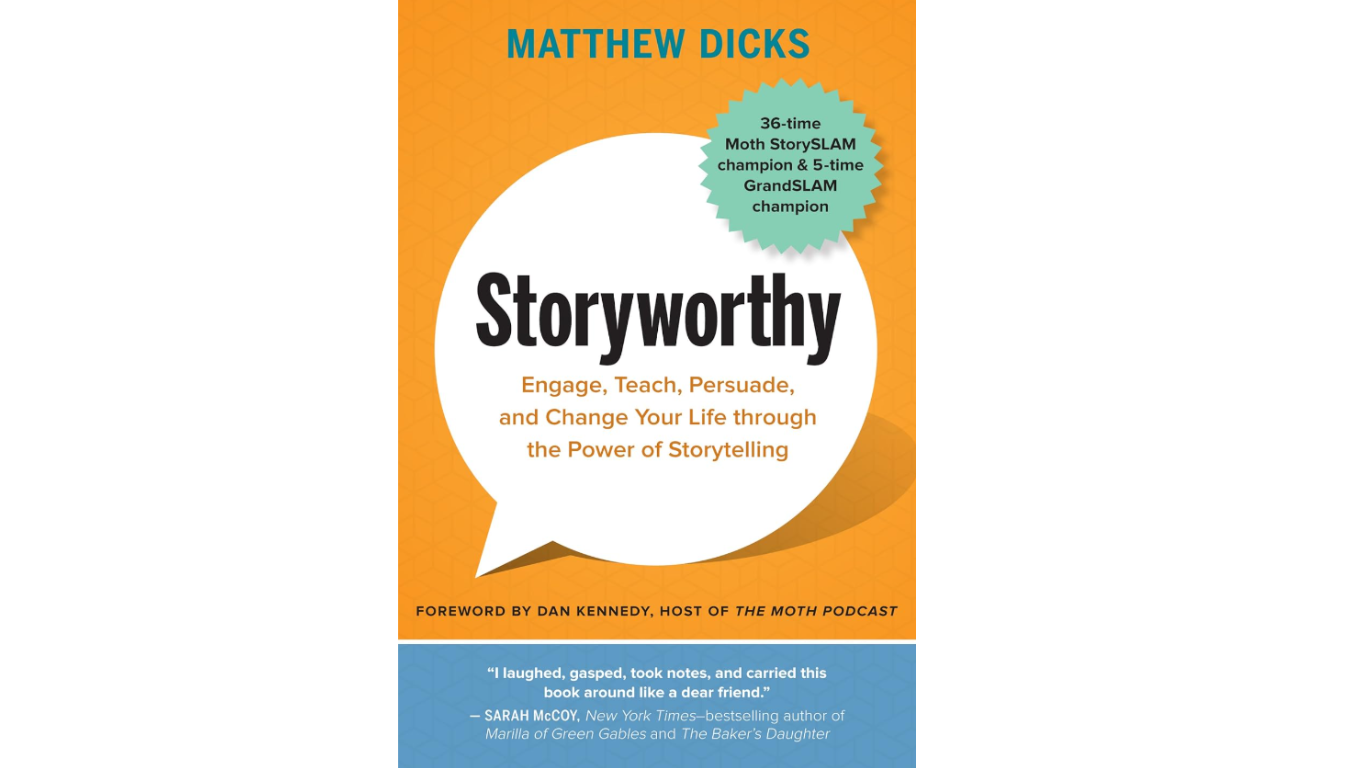
Matthew Dicks provides practical advice on storytelling that empowers marketers to connect with their audiences effectively.
Key Takeaway:
Finding and crafting meaningful moments from everyday life creates compelling stories.
His insights include:
- Engagement Techniques: Utilize personal anecdotes and real life experiences to create a bond with your audience.
- Story Structure: Follow a clear narrative arc—setup, conflict, resolution—to keep listeners engaged.
- Practice Makes Perfect: Regularly practice storytelling in various settings to refine delivery and impact.
- Emotional Connection: Focus on the emotions behind the story to evoke responses and foster loyalty.
By implementing these strategies, brands can craft compelling narratives that resonate deeply with consumers. Phil Knight’s memoir, ‘Shoe Dog’, is a prime example, as it highlights the financial struggles and personal sacrifices he faced while building Nike.
9. The Hero with a Thousand Faces by Joseph Campbell
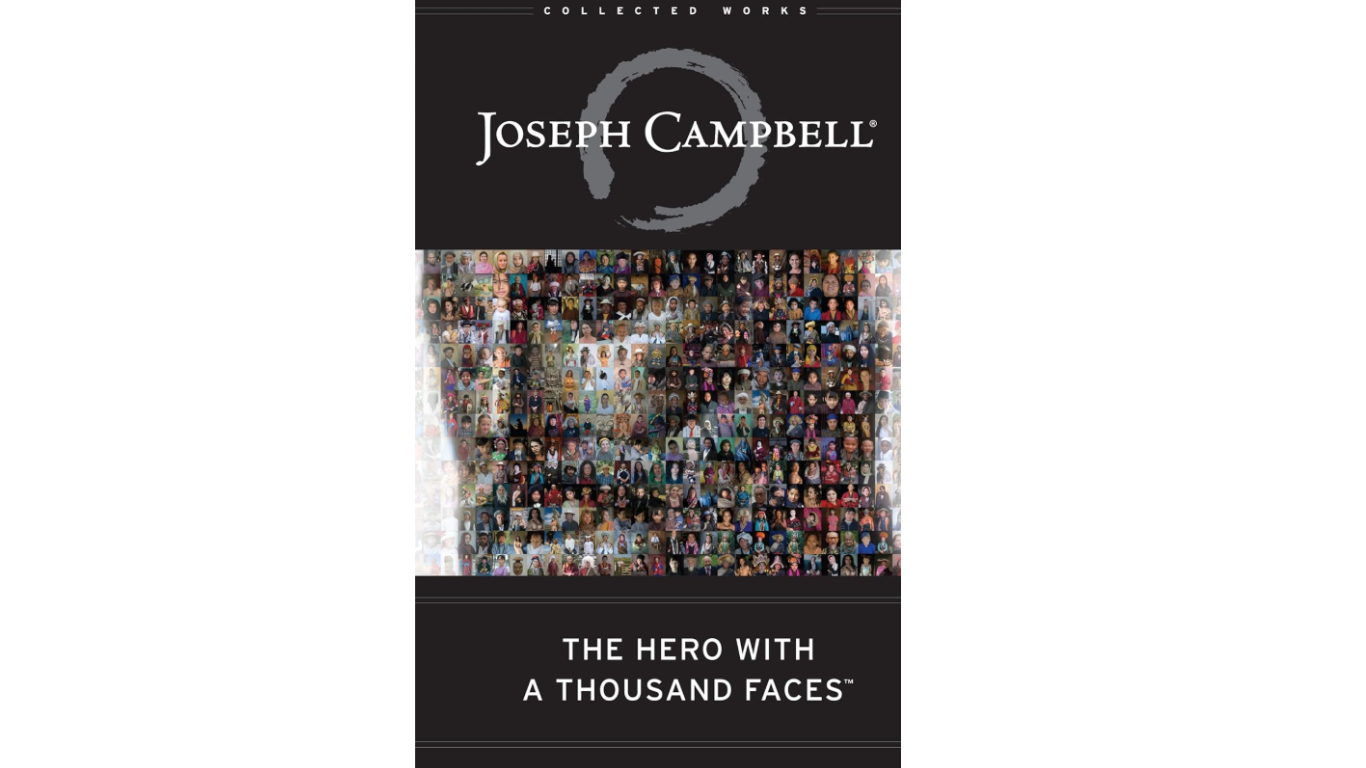
Joseph Campbell’s Hero’s Journey concept serves as a powerful framework for brand narratives. By understanding this structure, brands can create a compelling story that resonates with consumers on a deeper emotional level.
Key Takeaway:
All meaningful stories follow a universal pattern that resonates across cultures.
Key elements include:
- The Call to Adventure: Introduce the problem your audience faces.
- The Mentor: Position your brand as the guide leading customers through challenges.
- Transformation: Show how your product or service empowers customers to overcome obstacles.
Utilizing these elements helps craft authentic narratives, making them relatable and memorable. This framework has been used effectively in both fiction storytelling and brand marketing campaigns, providing a universal structure that audiences instinctively understand.
10. Winning the Story Wars by Jonah Sachs
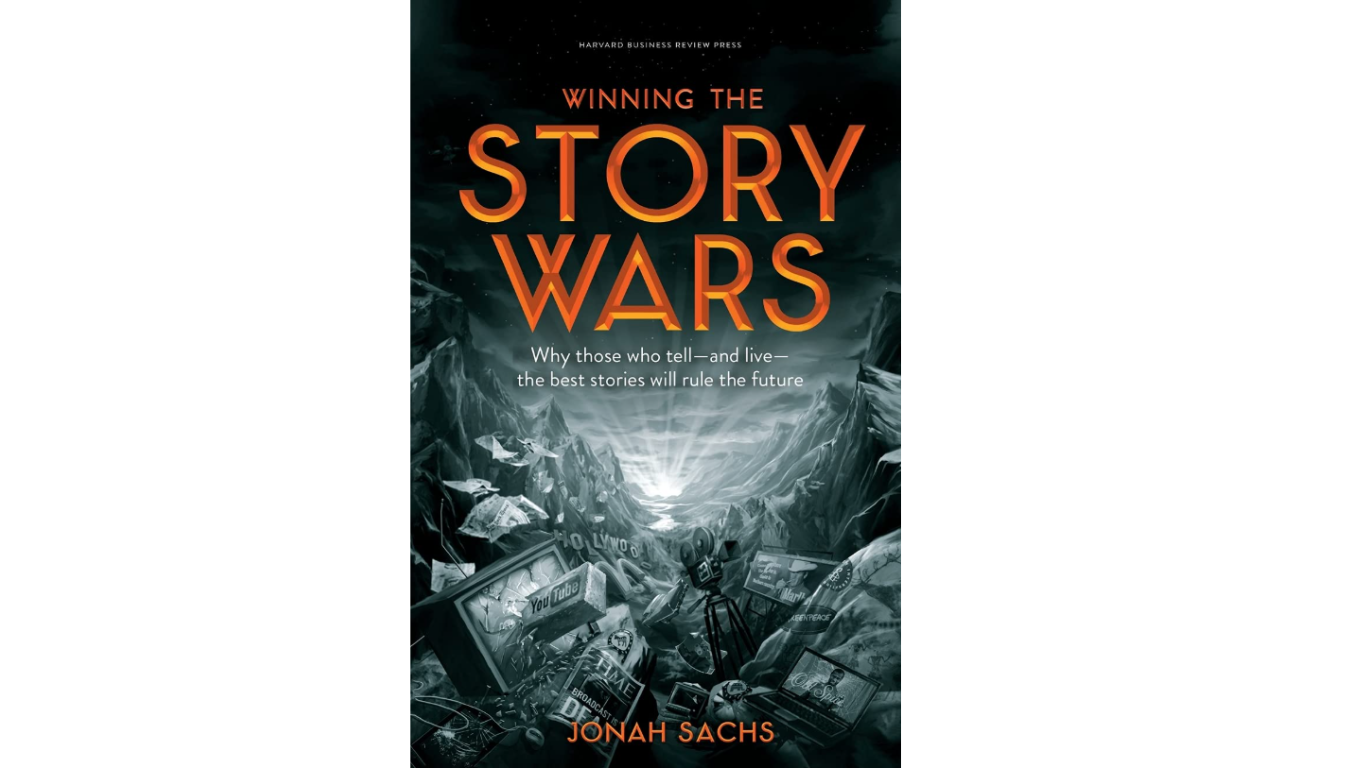
In an era where conventional advertising struggles to capture consumer attention, Winning the Story Wars offers vital strategies for brands to succeed in storytelling by crafting a great story.
Key Takeaway:
In the digital age, empowerment marketing beats traditional manipulation tactics.
Key insights include:
- Embrace authenticity: Consumers crave genuine connections. Brands that share honest narratives resonate more deeply.
- Focus on values: Aligning brand stories with societal values fosters loyalty and trust among audiences.
- Engage through emotion: Emotional storytelling not only attracts attention but also enhances retention and impact.
Sachs emphasizes that effective storytelling adapts to the evolving landscape, ensuring brands remain relevant and compelling amidst competition.
What Is Brand Storytelling?
Brand storytelling is the strategic use of narrative to connect your company, products, or services to the values and emotions that resonate with your audience.
Unlike traditional marketing that focuses on features and benefits, brand storytelling weaves these elements into a coherent narrative that explains who you are, why you exist, and why customers should care.
Effective brand storytelling creates a consistent narrative across all touchpoints—from your website and social media to packaging and customer service—creating an immersive experience that transcends individual transactions.
How Can Brand Storytelling Benefit You?
Brand storytelling delivers tangible business results that go beyond mere brand awareness. Companies with strong narratives consistently outperform competitors in customer loyalty metrics, with studies showing up to 55% higher customer retention rates for brands with coherent storytelling.
Additionally, employees at companies with clear brand stories report 27% higher engagement levels, translating to increased productivity and innovation.
Perhaps most importantly, effective brand storytelling allows businesses to command premium pricing—consumers willingly pay 20-200% more for products with compelling narrative associations compared to functionally identical alternatives.
Why Brand Storytelling Matters in Modern Marketing?
Before diving into our recommended reads, let’s understand why brand storytelling has become so crucial. In an era where consumers are bombarded with thousands of marketing messages daily, stories cut through the noise.
They engage the brain differently than facts and statistics, making your message more memorable and persuasive.
Great brand storytelling:
- Creates emotional connections with your audience
- Differentiates your brand from competitors
- Makes complex information more digestible
- Builds trust and authenticity
- Increases customer loyalty and advocacy
How to Apply Brand Storytelling Principles to Your Business?
Reading these books is just the beginning.

The Digital Frontier: Storytelling in the Age of Technology
In today’s digital landscape, brands must adapt their storytelling techniques to thrive across various platforms.
Google algorithms increasingly favor content that engages users meaningfully, making storytelling not just an art but a technical necessity for visibility.
The most successful digital storytellers understand how to:
- Craft micro-narratives for social media that capture attention in seconds
- Use data analytics to refine stories based on audience engagement
- Implement transmedia storytelling strategies that create consistent yet platform-optimized narratives
- Leverage user-generated content to build community-driven storytelling
Companies like Airbnb have mastered this approach, using customer stories as the centerpiece of their marketing strategy.
Their “Belong Anywhere” campaign showcases real life experiences from hosts and guests, creating authentic connections that traditional advertising could never achieve.
Creativity and Innovation in Brand Storytelling
Creativity lies at the heart of effective brand storytelling. The most memorable brand stories break convention and present familiar ideas in fresh, unexpected ways. From Nike’s empowerment narratives to Dove’s real beauty campaigns, innovative storytelling approaches have transformed how we perceive these brands.
To enhance your creativity in brand storytelling:
- Study cross-disciplinary examples from film, literature, and oral traditions
- Experiment with unconventional narrative structures
- Combine unexpected elements to create distinctive brand voices
- Teach yourself to think beyond traditional marketing approaches
As Steve Jobs often demonstrated at Apple, the most powerful brand stories don’t just sell products—they sell possibilities and potential futures. His product presentations weren’t technical specifications but carefully crafted stories about how technology could transform lives.
Final Thoughts
Brand storytelling is a game-changer in modern marketing. By mastering the principles from these books, you’ll not only engage your audience but also build trust, loyalty, and long-term success.
Start implementing these storytelling strategies today and watch your brand flourish!
What’s your favorite storytelling book? Let us know in the comments!
Bonus: Additional Resources for Mastering Brand Storytelling
- Online courses on storytelling from platforms like Udemy and Coursera that teach narrative techniques
- TED Talks on storytelling by experts like Brené Brown and Simon Sinek
- Podcasts such as “The Business of Story” and “Marketing Over Coffee”
- Case studies of brands that successfully use storytelling, like Nike, Apple, and Airbnb
- Workshops that help entrepreneurs develop their unique brand stories
- Fiction writing resources that can improve your narrative skills
By diving into these resources and continually refining your storytelling skills, you’ll position your brand for greater impact and success in 2025 and beyond.
Buyers Guide: How We Conducted Our Research
When evaluating the best brand storytelling books for this guide, we determined our recommendations using these factors:
- Practicality: How immediately applicable are the frameworks and techniques? We prioritized books with actionable strategies over purely theoretical works.
- Comprehensiveness: Does the book cover the full spectrum of brand storytelling, or does it focus on a narrow aspect? We included both specialized deep dives and broader overviews.
- Reader feedback: What do actual practitioners say about implementing these methods? We analyzed hundreds of reviews from marketing professionals who applied these techniques.
- Author expertise: What are the author’s credentials in brand storytelling? We favored books by authors with proven track records of successful storytelling campaigns.
- Longevity: Has the book stood the test of time, or does it rely on trendy tactics that may soon become outdated? We selected books with enduring principles.
- Scientific backing: Are the storytelling methods supported by research in psychology, neuroscience, or behavioral economics? Books with evidence-based approaches scored higher.
FAQ
Why should I invest time in reading these books on brand storytelling?
Investing time in these books will equip you with powerful techniques to master brand storytelling, helping you transform your marketing efforts and stand out in today’s competitive market.
How can I apply insights from these books into my marketing strategy?
You can implement insights from these books into your marketing strategy by focusing on customer journey mapping, crafting emotionally resonant messages, and utilizing storytelling frameworks like the Hero’s Journey to enhance your brand narratives.
What role does authenticity play in brand storytelling?
Authenticity is crucial in brand storytelling as discussed in ‘All Marketers Are Liars’ by Seth Godin. Compelling stories that are genuine build trust between the brand and its audience, leading to stronger customer relationships.
How can ‘Building a StoryBrand’ improve my messaging strategy?
‘Building a StoryBrand’ by Donald Miller provides key insights on clarifying your brand’s message through effective storytelling techniques. It emphasizes the importance of positioning your customer as the hero in your story to create a more impactful connection.
What is brand storytelling and why is it important?
Brand storytelling is the practice of using narrative to connect with customers on an emotional level, which is crucial for any business owner. It is significant in modern marketing strategies as it helps brands clarify their message, build trust, and foster customer loyalty.



